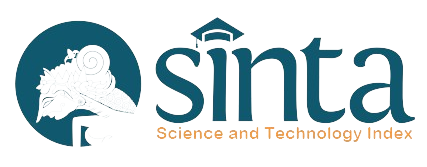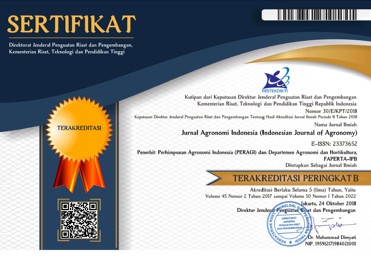Keragaman Genetik dan Karakter Agronomi Galur Haploid Ganda Padi Gogo dengan Sifat-Sifat Tipe Baru Hasil Kultur Antera
DOI:
https://doi.org/10.24831/jai.v37i2.1399Abstract
The development of new plant type of upland rice in relatively short time can be done by using anther culture technique. The technique has been recognized as a rapid and efficient technology for plant improvement. Plant materials used in this research were 320 s doubled haploid lines derived from anther culture and their 4 parents namely Fatmawati, SGJT-28, SGJT-36 and Way Rarem. Observation was conducted on plant height, number of productive tillers, days of flowering and maturity, length of panicle, number of grains per panicle, number of filled grains per panicle, percentage of unfilled grains, weight of 1000 grains and weight of grains per hill. The result showed that there were broad variations in the agronomic characters of doubled haploid lines. There were 58 upland rice lines can be obtained with new plant type characters (NPT). Several lines showed superior characters. Line P6-105, P3-134, P3-135, P3-175 had productive tiller more than that of parental, P3-160, P3-196, P6-274 had long panicle, number of grain per panicle and low percentage of unfilled grain, P3-135, P6-271, P6-274, and P6-276 had weight of grains per hill. These lines had potential as new plant type of upland rice. Length of panicle, number of grains per panicle, number of filled grains per panicle, and weight of grains per hill had high heritability and wide genetic variability.
Key words: Genetic variability, doubled haploid, anther culture, upland rice












